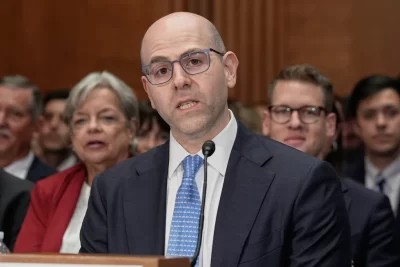
Eleven days after 57-year-old Anthony Talotta arrived at a Pittsburgh jail, he died from what his family says was a treatable and preventable infection from a foot wound. Talotta, who had autism and developmental disabilities, had been brought to the jail after a fight with a staff member at the group home where he lived.
In a federal lawsuit filed Tuesday, Talotta’s family alleges doctors and medical staff at the Allegheny County Jail provided substandard care. The lawsuit claims jail policies prohibiting prisoners with mental illness or developmental disabilities from being housed in the medical unit violate the Americans with Disabilities Act by creating a system that makes it harder for them to get adequate medical care.
The lawsuit also notes that at least 17 people died at the medically understaffed jail in a two-and-a-half year timeframe from March 2020 to September 2022, the majority of whom had mental health or chronic medical needs.
“This lawsuit is intended not only to find full and fair justice for Anthony, but it is also intended to find justice for the individuals who came before him and took their last breaths at the Allegheny County Jail as well and to protect those who enter that jail after them with the same or similar chronic care and mental health needs,” said Alec Wright, an attorney representing Talotta’s family along with attorneys at the Abolitionist Law Center.
The lawsuit names the Allegheny Health Network, which is the contracted jail medical care provider; Allegheny County and Medical Director Donald W. Stechschulte. The lawsuit also names Wilson Bernales, a doctor who dismissed or went against hospital recommendations in his treatment of Talotta and who, at the time of his employment with Allegheny Health Network, had had his medical license revoked or suspended in eight states. The lawsuit also names the unknown staffing agency that screened and hired Bernales.
Allegheny County and the Allegheny Health Network both declined requests for comment.
Bernales, who is now living in Nevada, said he has never had any malpractice issues and called the medical license issues in other states “administrative concerns.”
The family’s attorneys disputed Bernales’ account of his license issues, noting several states in publicly available discipline proceedings questioned his competence and skill as a physician. In the complaint, they note one state board wrote Bernales “failed to meet his burden of proving that he is able to safely, skillfully and competently practice medicine.”
Attorneys for Talotta’s family said the jail’s medical staff was aware of both Talotta’s injury, which included fractures, a torn ligament and blistering from burns, and that because of his autism and intellectual disabilities he was unable to communicate his medical needs or care for himself.
Jeff Lagrotteria, Talotta’s cousin, said Anthony called him from the jail but never mentioned his injury.
“He just said he was scared and asked how he was going to get out of that place… so that’s what we were working on,” Lagrotteria said, adding that no one from the group home or the jail told him about the injury from the fight either. “For years, he was taken care of by the group homes, and there were no issues. As soon as he gets into the jail, he got treated so horribly he died within days.”
Luciana Randall, president of Autism Connection of Pennsylvania, works with families all over the state who have incarcerated family members with developmental disabilities. But she said there are no comprehensive numbers of how many people incarcerated in the state have autism or developmental disabilities because jails do not screen for them.






